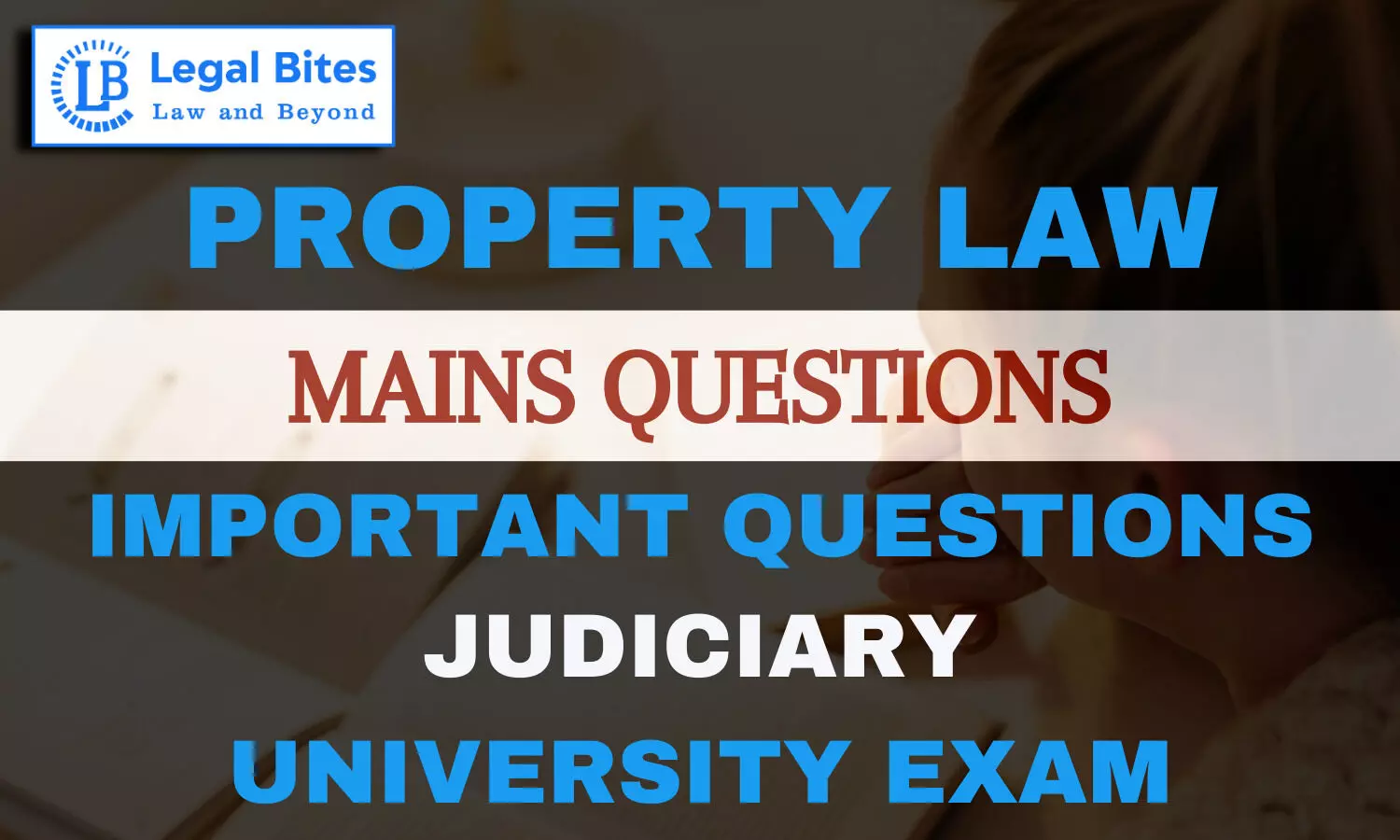Define lease. What are the different ways in which a lease may determine?
Find the answer to the mains question of Property Law only on Legal Bites.;

Question: Define lease. What are the different ways in which a lease may determine? [JJS 2018]Find the answer to the mains question of Property Law only on Legal Bites. [Define lease. What are the different ways in which a lease may determine?]AnswerSection 105 of the Transfer of Property Act, 1882 defines Lease as follows: -"A lease of immovable property is a transfer of a right to enjoy such property, made for a certain time, express or implied, or in perpetuity, in consideration of a...
Question: Define lease. What are the different ways in which a lease may determine? [JJS 2018]
Find the answer to the mains question of Property Law only on Legal Bites. [Define lease. What are the different ways in which a lease may determine?]
Answer
Section 105 of the Transfer of Property Act, 1882 defines Lease as follows: -
"A lease of immovable property is a transfer of a right to enjoy such property, made for a certain time, express or implied, or in perpetuity, in consideration of a price paid or promised, or of money, a share of crops, service or any other thing of value, to be rendered periodically or on a specified occasions to transferor by the transferee, who accept the transfer of such terms."
According to Black's Law dictionary lease is defined as, “Lease is a conveyance of lands tenements to a person for life, for a length of years, or at will, in consideration of rent or some other recompense.”
Section 111 in The Transfer Of Property Act, 1882 lays down the provision regarding the Determination of lease. The section states that a lease of immovable property is determined in the following ways:-
(a) by efflux of the time limited thereby;
(b) where such time is limited conditionally on the happening of some event—by the happening of such event;
(c) where the interest of the lessor in the property terminates on, or his power to dispose of the same extends only to, the happening of any event—by the happening of such event;
(d) in case the interests of the lessee and the lessor in the whole of the property become vested at the same time in one person in the same right;
(e) by express surrender; that is to say, in case the lessee yields up his interest under the lease to the lessor, by mutual agreement between them;
(f) by implied surrender;
(g) by forfeiture; that is to say,
(1) in case the lessee breaks an express condition which provides that, on breach thereof, the lessor may re-enter; or
(2) in case the lessee renounces his character as such by setting up a title in a third person or by claiming title in himself; or
(3) the lessee is adjudicated an insolvent and the lease provides that the lessor may re-enter on the happening of such event; and in any of these cases the lessor or his transferee gives notice in writing to the lessee of his intention to determine the lease;
(h) on the expiration of a notice to determine the lease, or to quit, or of intention to quit, the property leased, duly given by one party to the other.



